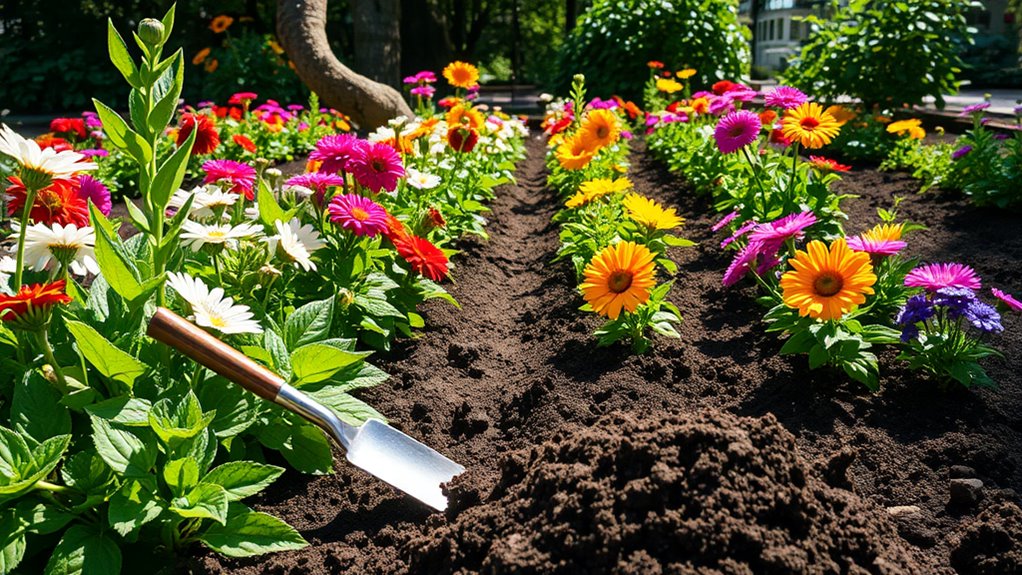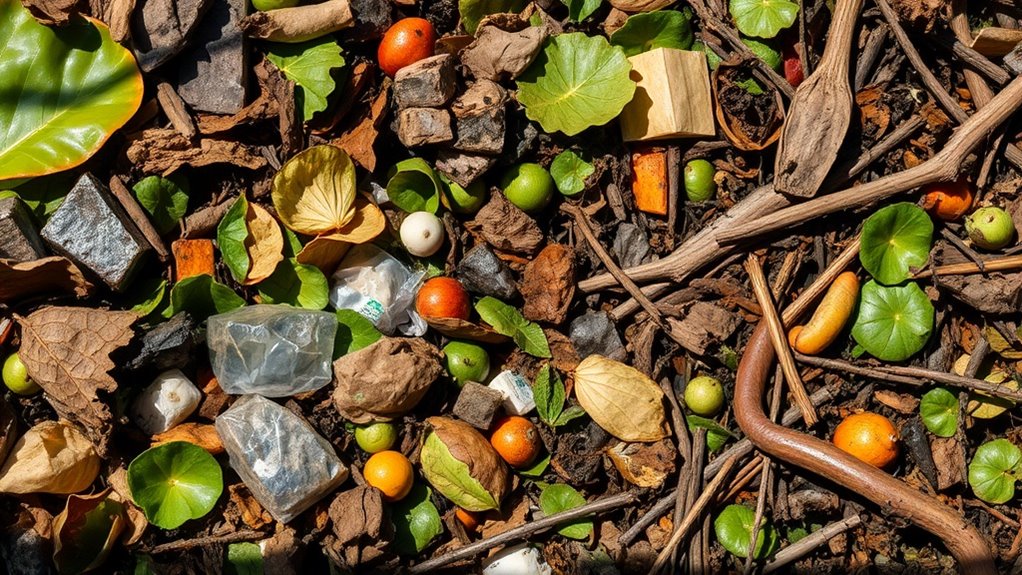The Soil Fix That Brought My Garden Back to Life
You’ve noticed your garden isn’t thriving like it should. Plants seem stunted, and growth is minimal. This may stem from poor soil health, but don’t worry—there’s a solution. By understanding soil problems and testing for nutrient deficiencies, you can implement targeted amendments that will transform your garden. The process is straightforward, yet it requires commitment. Curious about how you can turn your garden around? Let’s explore the steps to rejuvenate your soil.
Understanding My Soil Problems
Have you ever wondered why your garden isn’t thriving the way you’d hoped? Understanding your soil problems is crucial for a successful garden.
Compacted, nutrient-poor, or dry soil might stifle your plants’ growth. A soil rescue is possible! Test your soil, identify its deficiencies, and take action.
Improving soil structure and fertility can transform your garden into the lush paradise you desire. Certain habits that harm soil can exacerbate these issues, so be mindful of how you treat your garden’s foundation.
Researching Soil Amendments
Once you’ve identified your soil problems, the next step is researching soil amendments that can restore balance and vitality.
Explore options like compost, vermiculite, or gypsum, each tailored to specific deficiencies.
Dive into organic solutions that enhance microbial activity and nutrient availability.
Understanding each amendment’s unique benefits empowers you to make informed choices, transforming your garden into the thriving oasis you’ve always envisioned. Additionally, incorporating essential soil ingredients can significantly improve the health of your garden by providing vital nutrients.
Testing Soil Ph and Nutrient Levels
To ensure your garden thrives, it’s crucial to test the soil’s pH and nutrient levels regularly. Accurate testing helps you understand your soil’s needs, enabling you to make informed decisions. Additionally, you can use simple methods to evaluate garden soil health, providing insights into what improvements might be necessary.
| Nutrient Type | Ideal Level | Possible Amendments |
|---|---|---|
| Nitrogen | 10-20 ppm | Compost, fertilizer |
| Phosphorus | 15-30 ppm | Bone meal, rock phosphate |
| Potassium | 120-150 ppm | Kelp meal, wood ashes |
Implementing Organic Matter
Implementing organic matter in your garden enriches the soil, enhances its structure, and promotes a healthy ecosystem.
By adding compost, well-rotted manure, or leaf mold, you boost nutrient levels and improve moisture retention. This encourages beneficial microorganisms to thrive, fostering a vibrant environment for plant roots. Additionally, using a DIY fertilizer recipe can further enhance the nutrient profile of your soil.
Your plants will respond positively, growing stronger and more resilient, transforming your garden into a flourishing sanctuary.
Regular Maintenance and Care
Maintaining and caring for your garden soil is essential for long-term health and productivity. To keep your soil thriving, focus on these key practices:
-
Regularly test pH and nutrient levels.
-
Apply compost and organic fertilizers consistently.
-
Ensure adequate drainage to prevent waterlogging.
-
Rotate crops each season to reduce pest buildup.
-
Monitor for pests and diseases to take prompt action.
Additionally, be mindful of indicators of struggling soil that can signal when your garden needs a boost.
Your plants will thank you!
Tracking Progress and Results
Tracking the health of your garden soil after implementing maintenance practices is vital for understanding its long-term dynamics.
Regular soil tests, moisture levels, and nutrient content assessments keep you informed about how your efforts impact soil structure and fertility.
Observing plant growth and resilience also provides feedback, guiding adjustments to ensure your garden thrives, fostering a vibrant ecosystem for years to come.





